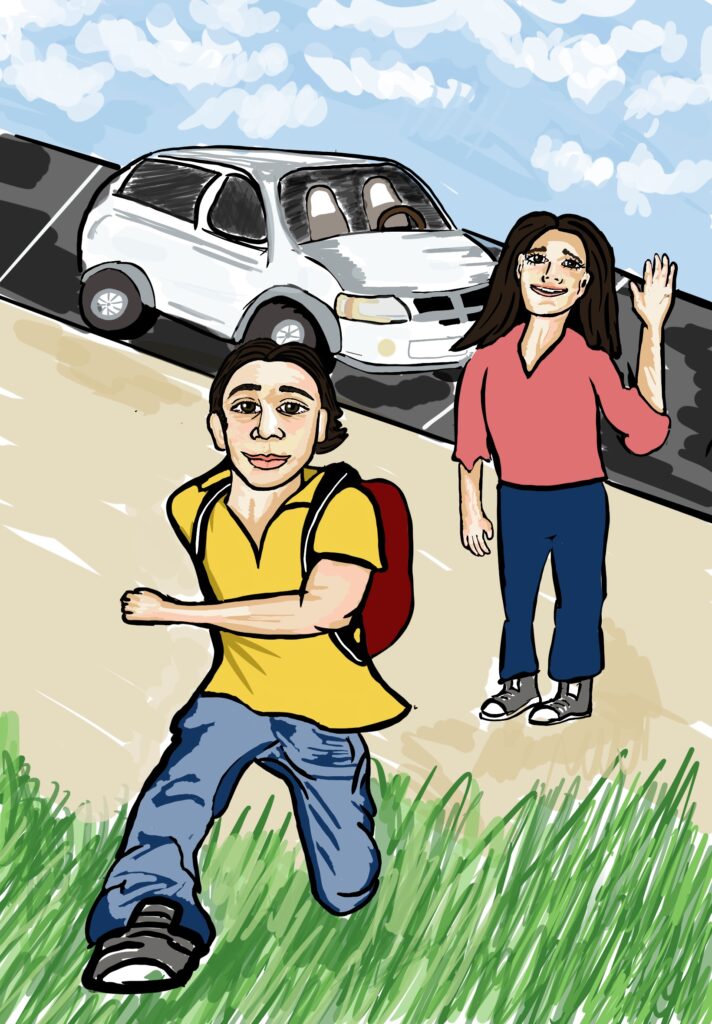
Cecilia Zhou ’17, left, and Noah Hermes de Boor ’18, right, demonstrating the power of good public speaking.
From the day of the impassioned speech that began her bid for the school presidency, Cecilia Zhou’s ’17 defining trait has become her brilliant public speaking ability. Cecilia, also known as Cece, draws the full attention of her audiences, becoming the focus of an auditorium through her purposeful gestures and deliberate elocution.
Despite the seemingly effortless execution of her speeches, Cece relies on years of hard work to command a room like she does. She, like so many great Choate orators, took advantage of Choate’s public speaking clubs, some of our school’s most woefully underutilized resources. Clubs like the Debate Team, in which Cece honed her skills, exercise students’ public speaking and critical thinking skills, which are crucial to future success.
Public speaking clubs sharpen their constituents’ ability to present an argument to a crowd, a skill with great benefits. Few would deny the importance of being able to stand before a crowd and deliver an effective message. This skill empowers one to persuade large groups, garner sympathy, or even inspire outrage by utilizing vocal inflection, hand gestures, and other debate minutiae. The significance of these skills is without question: one finds glaring disparities between an orator with command of these skills and one like Donald Trump, whose “air-traffic-control” hand signals and violent vocal undulations only distract from his message.
Yet the impact of good public speaking extends beyond the traditional speaker-crowd scenario. Public speaking skills also enable one to contribute meaningfully to class discussions and propel conversation. Balanced class discussions require many of the pillars of public speaking: conciseness, decorum, structure, and more. In parliamentary debate, one learns these principles by performing eight-minute speeches, in which one must construct a brief, organized argument with respectful refutation and convincing explanations. If each Choate student approached Harkness-table discussions with this level of scrutiny, we all would have to sit through fewer awkward silences and unwarranted lectures by our more loose-lipped peers.
Furthermore, public speaking teaches one how to refute another’s arguments while maintaining mutual respect. In a debate, you can’t call someone a pejorative or physically tear up someone’s argument when you disagree with that person. Trained public speakers learn to avoid derisive and unproductive lines of argumentation, focusing on above-the-belt clashes. Shifting argumentation to more respectful, restrained discourse would benefit Choate, where some have complained of being shut down in conversations or attacked personally, rather than intellectually.
Increased use of Choate’s public speaking resources would also improve the student population’s critical thinking skills, by teaching students how to consider an issue from multiple perspectives. At a formal debate, one is without the luxury of choosing their own argument, and, often, one must argue against their conscience. At a tournament last year, I delivered a forceful argument in support of the constitutional right to bear arms, a constitutional right on which I think the framers of the constitution ought to have saved their ink.
We often define ourselves as living in the “Choate bubble,” a description that I believe is fitting. While studying abroad in Jordan, I exposed myself to ways of thinking that bore no similarity to those present at Choate, and, in doing so, I recognized the importance of exposing oneself to foreign opinions. After living with Jordanians who became my friends, I felt abler to empathize with those from backgrounds dissimilar to mine and those with opinions that opposed my own. Choate students lack this ability. I am sure of this when I see so many obdurate students refuse to consider contrary opinions or even to offer arguments against opinions with which they disagree.
Beyond its technical beauty, Cecilia’s convocation address excelled in its accurate diagnosis of Choate’s biggest problem: disunity. Unhealthy discord and silent aggression too often take the place of meaningful dialogue and respectful debate. Our collective preference for either vitriol or passive aggression is propagated by our inability to empathize with contrary beliefs and, therefore, with one another. These issues that act to detriment our community are those with which public speaking training equips one. And while public speaking clubs may not seem sexy, school-wide unity and mutual consideration always are.




